Without a positive and constructive effort from the West, Russia and Ukraine might not be able to resolve the current conflict.
Brussels, Moscow and Kiev recently announced they would delay implementation of the European Union-Ukrainian agreement for a year and begin talks to resolve trade issues that will arise from the agreement. After nearly 3,000 dead, thousands more wounded and hundreds of thousands displaced, the European Union (EU) agreed to what it should have one year ago.
Russia had pushed for the very same three-way Ukrainian-EU-Russian talks for years, even as Ukrainian President Viktor Yanukovich was set to sign the agreement on November 29, 2013, but the EU rejected Moscow’s call. This and NATO expansion are two ways in which — what has been primarily a domestically driven conflict — a civil war was sparked and stoked by the interference and failed leadership of foreign powers.
In the West and Kiev, the making of the Ukrainian Civil War has been one of political hubris and great power ambition outpacing democratic principle and its capacity for political leadership and diplomacy. The West drove NATO and EU expansion to Ukraine’s doorstep and Russia’s borders, offering all sorts of enticements to lasso Kiev into the community of democracy’s “security zone” and away from the “Russian world.” Moscow played a similar role in producing this regrettable and all too avoidable outcome, through its repeated overreactions to the West’s hubris, escalating the crisis.
In the West, the EU abandoned democracy-promotion principles in favor of power aggrandizement in pushing expansion east. Brussels had stipulated in early 2013 that then-Ukrainian President Yanukovich release all of some one dozen political prisoners before it would sign the EU association agreement initialed by both sides in early 2012. Yanukovich refused, trapped in a quandary because former Prime Minister Yulia Tymoshenko, who had been imprisoned for allegedly violating the law by signing a disadvantageous gas deal with Russia in 2011, was thought to be his main rival for the presidency and to have been imprisoned primarily for that reason.
The Road to Perdition
Despite Yanukovich’s refusal and Russian protestations, Brussels convened the November EU summit to sign the agreement, when Yanukovich suddenly balked. Less troubled by the exigencies of democratic principle, President Vladimir Putin had offered Kiev $15 billion and other advantages; Yanukovich reneged to sign the EU agreement, and the rest is history. Had the EU stuck to its principles and sat at the table with Moscow and Kiev, the revolution and war could have been avoided, Ukraine would have some form of EU integration, and Tymoshenko and others would probably have been freed at about the same time they were (late February 2014), if not earlier.
Once the demonstrations against the delay in signing the agreement began, Yanukovich committed the first escalation of the crisis. In the early morning of November 30, he or someone within his circle sent in the Berkut special forces to crack down on protesters, sparking the mass demonstrations that would transform into a revolution over the next three months.
Celebrating the fall of “another Berlin wall,” Washington and Brussels had forgotten, and were not prepared for, the rapidly intensifying Russian speakers’ counter-revolutionary, pro-autonomy movement in Crimea and the Donbass.
Throughout December and January, clashes between the police and demonstrators escalated, driven in good part by the infiltration of Maidan Square by hundreds of ultra-nationalist and neo-Nazi elements, largely from western Ukraine. As the anti-Russian nationalist element paraded across television screens, pro-Russians in southern and eastern Ukraine began counter-demonstrations opposing Kiev’s revolutionaries.
At the same time, American representatives intervened to escalate tensions. A US deputy secretary of state, together with the US ambassador to Ukraine, came to the Maidan and passed out cookies to the demonstrators. Senator John McCain traveled to Kiev to express his support, shaking hands with radical nationalist Oleh Tyahnibok, leader of the deceptively named Freedom Party, which is actually a national chauvinist, even neo-fascist party ideologically. Official US statements encouraged revolution rather than negotiation. Thus, in a statement from Mexico on February 20, President Barack Obama said the US would hold Yanukovich’s government responsible for avoiding violence and claimed the US expected the “peaceful protesters to remain peaceful,” even though neo-fascists and some others had been engaged in violence for months on Maidan. This statement signaled to radicals among the demonstrators that their violence would be tolerated in overthrowing the regime and signaled to moderates that they need not reign the radicals in.
Growing violence and impending civil war brought some to their senses. In mid-February German, French, Polish, and Russian envoys sponsored an agreement between Yanukovich and the top opposition party leaders. According to Polish Foreign Minister Radoslaw Sikorski – no friend of Putin – it was the Russian president who convinced a reluctant Yanukovich in a February 20 telephone call witnessed by Sikorski that sealed the deal. The US played no role in the talks and displayed little interest in the agreement’s fulfillment.
When on the day after the signing the agreement the opposition’s fascist elements broke it by storming the presidential and parliament buildings, rather than abandoning the buildings they had occupied, in accordance with the agreement, not a critical word was spoken in Western capitols. When pro-Yanukovich Ukrainian parliamentary deputies and other officials were attacked and opposition deputies assaulted pro-Yanukovich officials, the West remained silent. When the parliament – without a quorum and in violation of the constitution – impeached president Yanukovich, the West again was silent.
Celebrating the fall of “another Berlin wall,” Washington and Brussels had forgotten, and were not prepared for, the rapidly intensifying Russian speakers’ counter-revolutionary, pro-autonomy movement in Crimea and the Donbass. In their haste to capitalize on another “color revolution” on Russia’s periphery, Western leaders forgot that just as “the first casualty of war is the truth,” the first casualty of revolution is legality. The second is often the state. In Ukraine, counter-revolutionary separatism was driven in part by the rump, revolutionary Rada’s first act (later rescinded): the repeal of laws providing the Russian language a special status in regions with large Russian-speaking minorities.
Putin Had to React
Russians are well aware of the bitter fruits of revolution. Putin had not sparked the crisis, nor was he ready to end it. Faced with the prospects of the loss of the Russian Black Sea Fleet’s naval base in Sevastopol on the Crimea, the loss of some of the Russian important military’s weapons-producers in Donbass, and the likelihood of Ukraine’s entry into NATO, Putin had to react.
The post-revolutionary collapse of the Ukrainian state offered an opportunity to grasp victory from the jaws of defeat. The ethnic Russians in Crimea were the first to oppose the revolt in Kiev, and many had long sought re-unification with their traditional homeland. Not surprisingly, Putin’s choice was to steal Crimea while he could as a deserved, if illegal compensation for the loss of Ukraine. The Kremlin’s “polite green men” – Russian special forces sans insignia – stealthily and non-violently occupied Crimea, a hasty referendum was held, and Russia annexed the region by mid-March.
This was a clear escalation of the crisis. For the first time in Europe since World War II a country had seized the territory of another country by force without any other party’s use of force to justify if not legalize such an action. Putin would have done better to threaten what he could do later. He could have stationed tens of thousands of troops along the western border with Ukraine, increased to the number of troops in Sevastopol from 22,000 to the maximum of 25,000 allowed by treaty, and gone to the UN demanding that the Security Council require a return to the status quo of the February 20th agreement. If the West blocked such a resolution, Putin still would have had non-coercive options, including assisting a Crimean request to hold an internationally-minded referendum on Crimea’s status. If Kiev or Washington blocked such an effort, the option of seizing Crimea remained.
As the civil war waged from April to August, both sides engaged in a heated disinformation campaign, escalating rounds of economic sanctions, and military assistance to the warring Ukrainian parties.
In the meantime, the Kremlin’s more robust military posture in the region would ensure the safety of Crimea and the Donbass from marauding ultra-nationalists like the Right Sector. Putin either overreacted, lacked imagination, decided to change a problem into an opportunity, or engaged in all of the above.
Regardless, the Crimean annexation was bound to spark a harsh response in Kiev, Brussels and Washington. It did, further escalating the crisis. In response to Putin’s demarche, Kiev prepared to use force to save the crumbling east. The West began to adapt and has gradually ratcheted up economic sanctions and needlessly harsh rhetoric.
By late March demonstrators, and then armed groups in eastern and southern Ukraine, were seizing regional administration headquarters across central, eastern, and southern Ukraine in imitation of, and retaliation for the Maidan demonstrators’ similar actions in Kiev and elsewhere in winter. Clearly, some in the east and south were hoping to repeat the Crimean scenario. In April, with hardly any effort to negotiate with the demonstrators’ and rebels’ representatives, Kiev announced it was preparing an offensive anti-terrorist operation in the east and south. The haste with which Kiev went to war was shocking and irresponsible. It is enough to recall that similar events unfolded in Chechnya in autumn of 1991, but Moscow did not go to war until December 1994, negotiating on and off for three years.
Civil War Inevitable
Washington and Brussels manifested an appalling lack of leadership in this moment. In order to avoid the imminent catastrophe, they should have informed Kiev that no economic or other assistance would be forthcoming if they did not negotiate with the eastern rebels. Instead, as with the opposition’s violation of the February 20 agreement, there was dead silence. This diplomatic negligence made Ukraine’s civil war inevitable.
Washington exacerbated its negligence by cutting off almost all high-ranking contacts with Moscow. President Barack Obama has not spoken with Putin for months, while the US has exacerbated the crisis by implementing a series of sanctions and reinvigorating NATO in the region – the fundamental cause of the crisis to begin with. The long-feared civil war had begun, and yet Washington displayed no discernible urgency.
In response, Putin similarly did not speak out or otherwise discourage the rebels from seizing power in the east and south. He made no effort to seal off the border, allowing first tens, then hundreds of volunteers from Russia to come over the border and join the eastern rebels. However, it must be acknowledged that in early May when the now de facto breakaway republics of Luhansk and Donetsk prepared to hold referenda on autonomy within Ukraine or full independence, Putin did ask them to postpone the vote so as not to deepen the crisis. Similarly, when the rebels declared independence one week after the referenda and appealed to Moscow for recognition, Putin did not oblige.
By April, instead of trying to stop the intensifying anti-terrorist operation, NATO, the US State Department and Western mass media kept up a steady stream of polarizing hateful rhetoric, accusing Putin of being this century’s Hitler and portraying Russia as global backwater of knuckle-dragging racists which “produces nothing” and in which no one wants to live. They began issuing clearly false reports of Russian GRU agents penetrating and fighting in Ukraine based on disinformation passed on by Ukraine’s Security Service that were later exposed as false within days. For example, one report trumpeted by NATO’s Atlantic Council, the State Department, and The New York Times in April had to be retracted when the photographer who took the photographs reported that they had been falsely identified by the noted actors.
As the civil war waged from April to August, both sides engaged in a heated disinformation campaign, escalating rounds of economic sanctions, and military assistance to the warring Ukrainian parties. Western, Ukrainian, and Russian media rhetoric created an atmosphere in which the opposing sides were belittled and dehumanized. In May, Western governments and media ignored the fact that Kiev and its supporters were using dehumanizing language to describe anti-Kiev protesters, equating them with potato bugs that needed to be squashed. A consequence of this campaign came when Kiev-backed Right Sector and other neo-fascists burned alive more than 40 anti-Kiev demonstrators on May 2 in Odessa.
Shockingly, this was hardly noted in Western officials’ statements or mainstream media and received not nearly enough coverage the attack deserved. To the contrary, after the Maidan-connected Right Sector claimed responsibility for the atrocity, US Deputy Secretary of State Victoria Nuland visited Odessa, made no mention of the crime, and met with a backer of the Right Sector – Kiev-appointed governor of Dnepropetrovsk, the oligarch Ihor Kolomoiskii. Moreover, in her testimony before the US House of representatives Foreign Affairs Committee days after the Right Sector terrorist attack/pogrom in Odessa, Nuland did not mention Right Sector or the attack and when questioned by California representative Dana Rohrbacher about the presence of neo-fascists on Maidan tried to avoid answering the question.
Ukrainian history includes an anarchic streak of chaotic, multi-layered civil wars. Western expansionism, ambition and hubris, as well as inordinate Russian fears and overreaction, have brought the country yet another.
By mid- to late summer, Moscow appeared to escalate matters yet further when it apparently began violating Ukraine’s sovereignty again by intervening on the eastern rebels’ behalf. In August, an incursion (not an “invasion” in any meaningful sense of the term, as Western media claimed) occurred just as the rebels were about to be routed on the battlefield. It seems to have included sending in small teams of soldiers and perhaps using Russian artillery based across the border to fire on Kiev’s forces inside Ukraine. The result was a resounding defeat for the Ukrainian army, the National Guard, and neo-fascist volunteer battalions. In this case, however, the tactical escalation seemed to facilitate a strategic de-escalation in the form of September’s ceasefire.
As mid-September arrives, the ceasefire is holding. Putin and newly-elected President Petro Poroshenko seem to have agreed on it despite, and not because of any Western pressure on Kiev. Rather, Poroshenko appears to have been forced into talks by virtue of his army’s collapse and the mounting outrage of regular soldiers and neo-fascist volunteers regarding Kiev’s inability to support the counter-terrorist operation in the east. Commanders and troops are frequently threatening that after defeat of the rebels they will march on Kiev and deal with Poroshenko and the new leadership as they dealt with Yanukovich and his Party of Regions.
The surfeit of constructive leadership and diplomacy, the war of lies, and the civil war have left what remains of Ukraine and its economy in shambles, risking a so Maidan 2.0. The march of a disgruntled army on Kiev and the building “social Maidan” – the potential for full collapse of the economy, social infrastructure, and gas heat by winter leading to a social explosion – could make a perfect storm sending the country spiraling out of control.
Ukrainian history includes an anarchic streak of chaotic, multi-layered civil wars. Western expansionism, ambition and hubris, as well as inordinate Russian fears and overreaction, have brought the country yet another. Without a more positive Western contribution, Putin and Poroshenko may find it impossible to overcome the divisions on the ground.
In particular, the West should pressure Poroshenko to rein in radical elements in the volunteer battalions and the fewer in the regular army and aggressively pursue consolidation of the ceasefire, a permanent peace regime, and rapprochement with the Donbass. In addition, it must keep the pressure on Putin to refrain from further incursions or other support that might re-start the war and to pressure the Donbass army to stand down.
At the same time, the West could first propose the possibility of removing and then actually rolling back some of sanctions as Putin complies with these conditions. Finally, the West and Russia should develop a joint and robust economic assistance package that would reconstruct and develop the Ukrainian economy east and west deliverable on condition that a peace regime along the lines that Putin, Poroshenko and the Minsk working group have been pursuing over the last month.
The views expressed in this article are the author’s own and do not necessarily reflect Fair Observer’s editorial policy.
Support Fair Observer
We rely on your support for our independence, diversity and quality.
For more than 10 years, Fair Observer has been free, fair and independent. No billionaire owns us, no advertisers control us. We are a reader-supported nonprofit. Unlike many other publications, we keep our content free for readers regardless of where they live or whether they can afford to pay. We have no paywalls and no ads.
In the post-truth era of fake news, echo chambers and filter bubbles, we publish a plurality of perspectives from around the world. Anyone can publish with us, but everyone goes through a rigorous editorial process. So, you get fact-checked, well-reasoned content instead of noise.
We publish 2,500+ voices from 90+ countries. We also conduct education and training programs
on subjects ranging from digital media and journalism to writing and critical thinking. This
doesn’t come cheap. Servers, editors, trainers and web developers cost
money.
Please consider supporting us on a regular basis as a recurring donor or a
sustaining member.
Will you support FO’s journalism?
We rely on your support for our independence, diversity and quality.


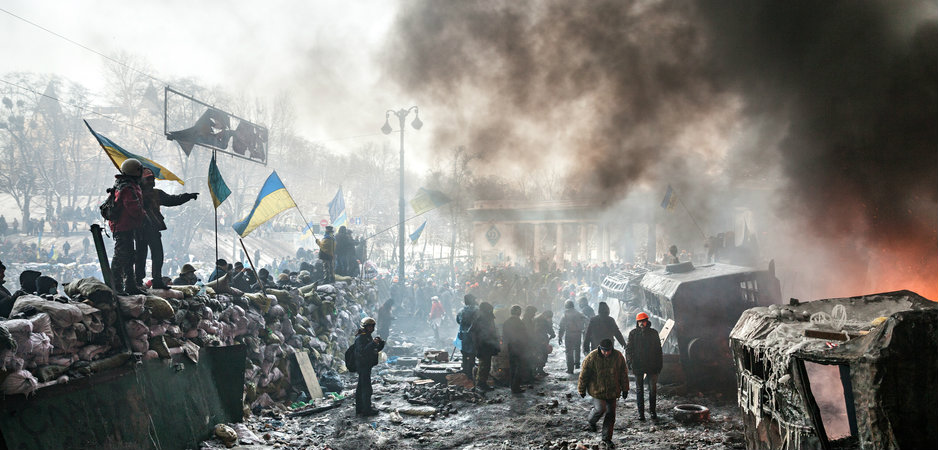

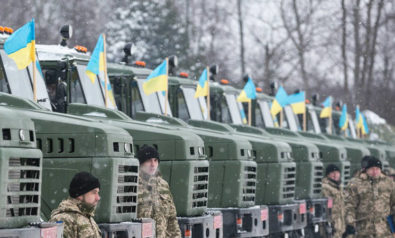

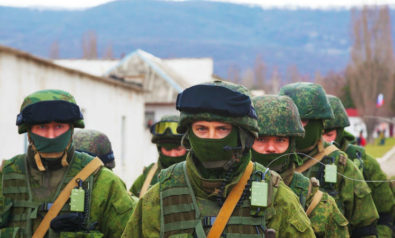
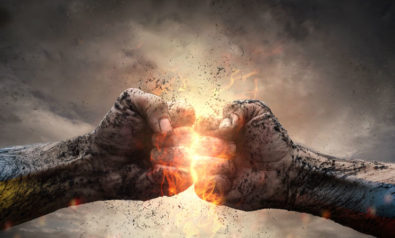
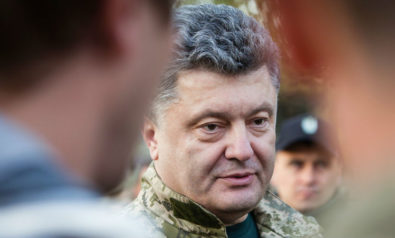


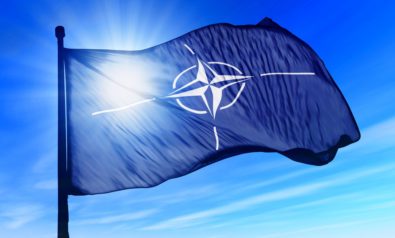

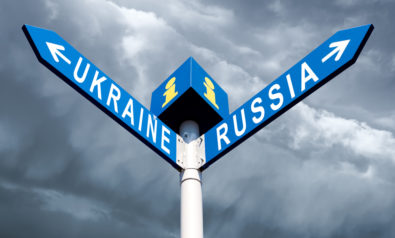
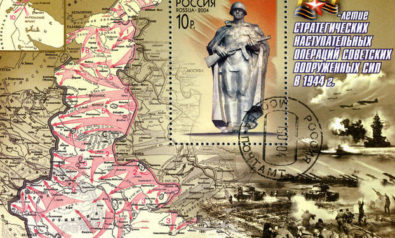
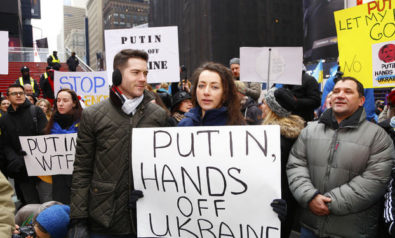

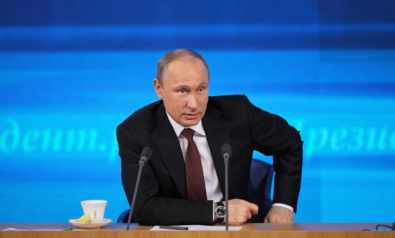
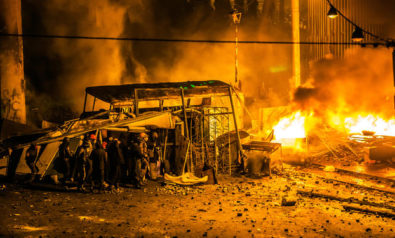

Comment
Well written, honest perception of the events. Only correct number of the Odessa massacre would be hundreds and genocide of civilian population including old ones and children in the South East of Ukraine should be mentioned.